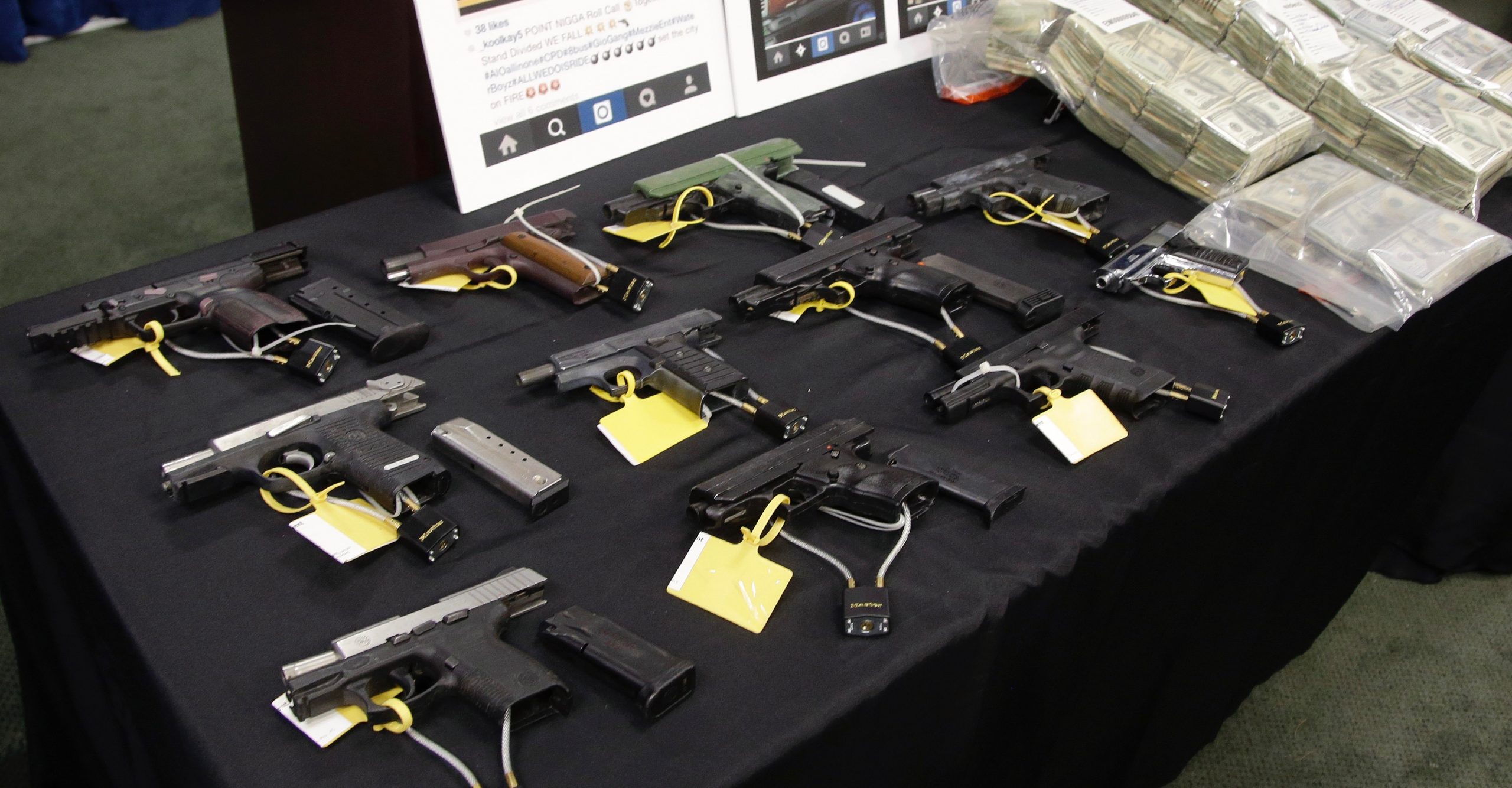Vermont has an opioid epidemic and relatively lax gun laws. Across the southern border, Massachusetts has a glut of cheap heroin and strict gun regulations.
A kind of black market efficiency has resulted from this supply and demand matchup: Dealers from Massachusetts are driving north to Vermont with loads of heroin to exchange for guns, which they then bring home to sell in Boston, officials say.
“Heroin is coming up here and guns are going back there,” Miro Weinberger, the mayor of Burlington, Vermont, tells The Trace.
The flow of guns on a stretch of Interstate 91 running from western Massachusetts north to Vermont has become such a well-known trafficking route that officials have dubbed it “the iron pipeline.” Police routinely find drugs, or guns, or both during traffic stops.
In February, police in Northampton, Massachusetts discovered $20,000 worth of heroin and two stolen guns during an early morning stop. A month later, a few miles up I-91, police found 230 baggies of heroin in a car headed to New Hampshire.
Many local officials say inconsistent gun laws are fueling the trade. Most northeastern states have enacted laws that extend background check requirements for gun purchases to include firearms sold at gun shows and unlicensed dealers. But Vermont, New Hampshire, and Maine do not require such checks on private sales, making it easier for people with criminal records to buy guns in those states, and move them around New England.
“We have good gun laws in Massachusetts, but our problem is most of the guns that seem to be coming in and being used in crimes are coming from other states,” Boston Police Commissioner William Evans tells The Trace. “It’s hard for us when so many come from our border states that have lax laws.”
The opioid crisis is the latest challenge for law enforcement officials struggling to get a handle on gun trafficking. Enterprising dealers are exploiting a sharp price disparity between Boston, where a small bag of heroin can be had for as little as $4, and places like Burlington, where the street markup can be 10 times as high, police say.
The intersection of the gun and drug trade is fueling violence, officials say. Weinberger says that a rare fatal shooting in his city in 2015 was the result of a drug deal gone awry.
Other drugs are often in the mix. In 2014, a Massachusetts man murdered a woman with a 9mm Glock that he bought in Brattleboro, Vermont, in exchange for crack cocaine, according to the Bureau of Alcohol, Tobacco, Firearms, and Explosives.
Frustrated with the failure of Congress to enact a universal background check requirement, and alarmed by the spiking opioid epidemic, elected officials and police chiefs across New England began holding a series of regional gun violence summits organized by Boston mayor Marty Walsh in 2014. “We need a coordinated approach,” Walsh says.
Northeastern officials were also heavily represented at a gathering of state and local officials, who visited Washington last week to discuss what they’re doing without help from the federal government.
“Because Congress can’t get the job done, a lot of the work is going to have to done on the local and state level,” Connecticut Governor Dan Malloy said in a press conference outside the White House.
The guns-for-drugs trade in New England is just one facet of the East Coast’s gun trafficking problem. Even if Maine, New Hampshire, and Vermont were to immediately tighten restrictions on private gun sales, guns would still flow north from Georgia, Florida and other states with lenient laws.
States like California, where the state Assembly just passed several new gun regulations, may be large enough to influence regional practices. But smaller states, and even large municipalities such as New York City, complain that they’re like islands, and have little power to address the illegal weapons washing ashore.
In Boston, officials cite a report published last year by Rutgers and Harvard researchers that tracked the origin of 1,813 of the 3,202 guns seized by police between 2007 and 2013. (The rest could not be traced.)
Just 16 percent of the guns were found in possession of the person who first bought them. Guns trafficked from states like Virginia, the Carolinas, Georgia, and Florida made up almost a quarter of guns seized in Boston. Roughly a fifth came from New Hampshire and Maine.
Officials say they are brainstorming solutions to the problem of the free flow of guns across borders. The regional summits have included 80 cities from around New England over the past two years. Boston, Hartford, and a few other cities also plan to work with a nonprofit, Arms with Ethics, in a pilot program in which they will develop standardized gun-violence action plans they hope can be copied more widely.
But specific steps to minimize gun trafficking have yet to emerge.
“It’s clearly a regional challenge,” Weinberger says. “If we’re all working on it, our ability to really get our arms around it and address it is greater.”
[Photo: AP Photo/Stephan Savoia]

